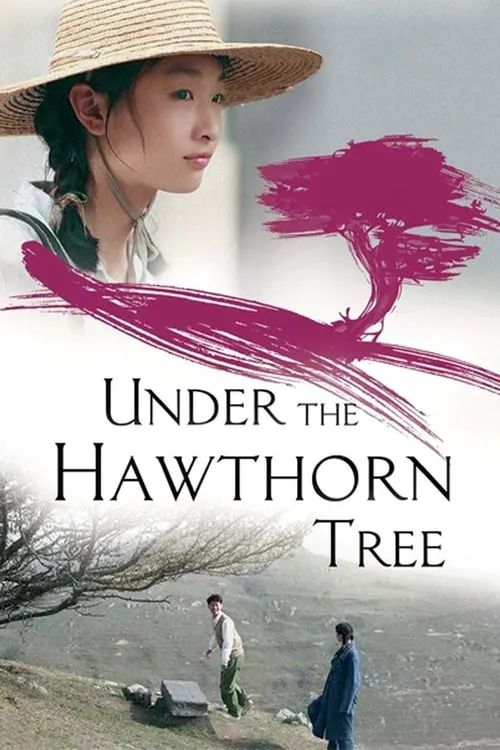Under the Hawthorn Tree

Plot
Set against the backdrop of China's tumultuous Cultural Revolution, Under the Hawthorn Tree is a poignant and passionate tale of love, class, and identity, expertly woven together by director Lü Yue. This beautifully rendered coming-of-age story follows the life of Jing Qiu, a young and spirited schoolgirl from a right-wing family, forced to leave her privileged life behind in Beijing to endure the hardships of reeducation in the rural countryside. Upon her arrival at the rural school, Jing Qiu is immediately struck by the vast chasm that divides her from the other students. As the daughter of a right-winger, she is viewed with suspicion and disdain by her classmates, who have been indoctrinated with the Party's revolutionary ideology. Despite her initial reluctance to adapt, Jing Qiu is tasked by her instructors to help write a new textbook that will serve as a guide for the masses. It is here that she meets Lao San, a young soldier with a radiant smile and an infectious enthusiasm that captivates Jing Qiu's heart. Lao San, or 'Old Three,' is a charismatic and talented young man from a peasant family, destined for great things according to the Party's vision for a new China. As the most skilled student in his class, he has been chosen to attend the prestigious army academy, a privilege reserved for the brightest and most loyal Party members. Despite their vastly different backgrounds and social status, Jing Qiu and Lao San find themselves inexorably drawn to one another, their mutual admiration and respect blossoming into a deep and abiding romance. As their love grows stronger, they face formidable obstacles from all sides. Jing Qiu's right-wing family disapproves of her association with a 'counter-revolutionary' and a member of the 'exploiting classes,' and her instructors frown upon her close relationship with a boy from a peasant family. Meanwhile, Lao San is forced to confront the harsh realities of his own identity as a product of the old society, now deemed to be 'feudal' and 'reactionary.' These conflicting loyalties and pressures threaten to tear them apart, setting their love against the turmoil of a nation in flux. Under the Hawthorn Tree masterfully captures the complexity and fragility of life under the Cultural Revolution, the intricate web of class and identity struggles that defined this pivotal period in Chinese history. Director Lü Yue's tender and insightful film raises profound questions about the human cost of ideological purity and the devastating consequences of a society built on division and fear. By exploring the tumultuous world of a young girl from a privileged background and her forbidden love for a boy from a peasant family, Under the Hawthorn Tree illuminates the personal price of revolution and the long-term effects of its aftermath on the people of rural China. In a world where the boundaries between loyalty, love, and identity were constantly shifting and tested, Jing Qiu and Lao San cling to their love as a lifeline in the maelstrom that surrounds them. Their story serves as a poignant reminder of the resilience of the human spirit in the face of crushing oppression, a testament to the enduring power of love and compassion to overcome even the most entrenched divisions. The movie is an adaptation of the popular novel "Huaier" by Chinese author Ai Xiaobo and it has received critical acclaim for its portrayal of a pivotal period in Chinese history and for its exploration of themes that remain relevant to this day. With its richly nuanced characters, stunning natural settings, and poignant love story, Under the Hawthorn Tree is a movie that will stay with audiences long after the credits roll.
Reviews
Recommendations




